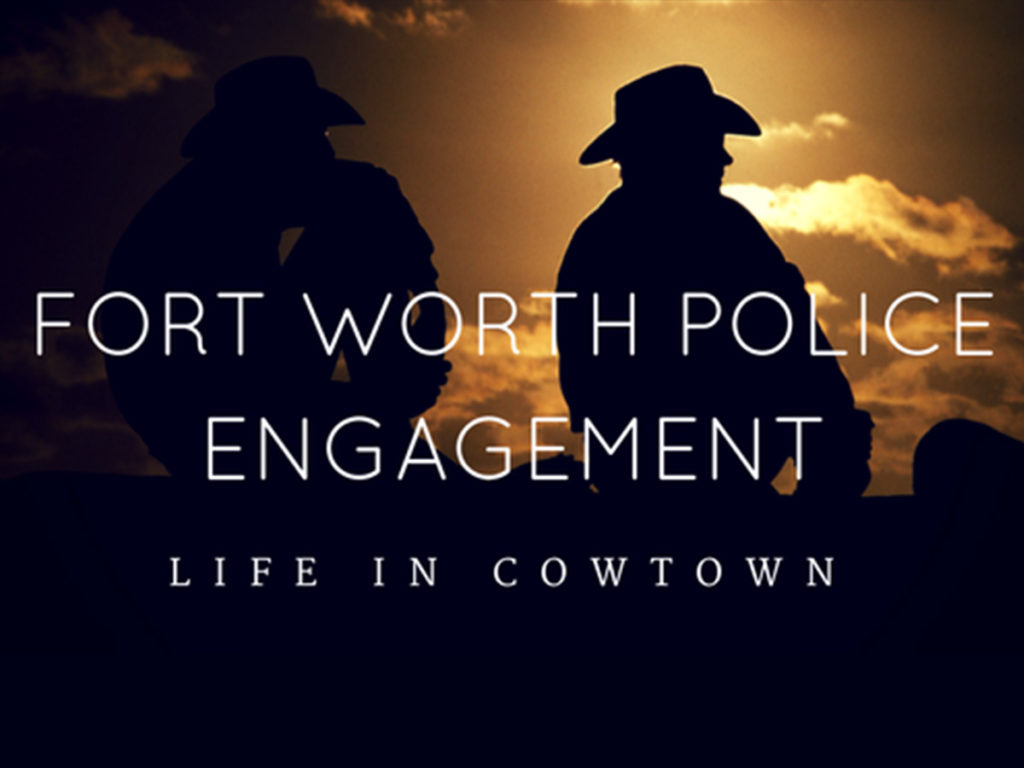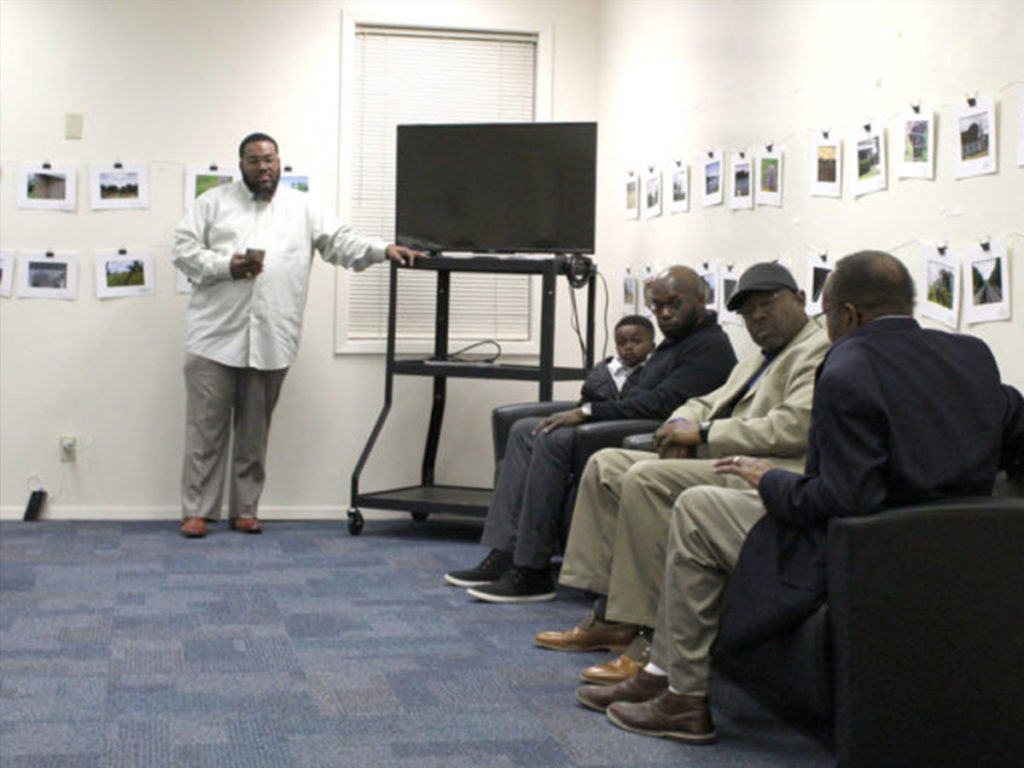I meet up monthly with a community forum, newly named Community Frontline, primarily attended by men who collectively attempt to provide aide to various things affecting Fort Worth as a whole (i.e. Education, Business, Jobs/Finances, Criminal Justice/Law Enforcement, Community Development/Pride, Health, & Rescources being the official teams our forum as a whole makes up). It meets up in the Stop 6 Neighborhood, so a lot of focus is put on initiatives in that neighborhood, but while this group is still in its infancy (we’ve had 3 monthly meetings as a whole so far), we intend to provide information, resources, and volunteer work wherever necessary in Fort Worth.
Recently (last Wednesday), Deputy Chief Vance D. Keyes, PhD and East Division Captain Michael A. Shedd from the Fort Worth Police Department came to speak about a lot of the issues pertaining to police and people of color in our communities and local government and police-based initiatives to aide Stop Six. This is the information I was able to gather that they wanted to share with us:
Aubrey Thagard, the director of the Fort Worth Neighborhood Services Department, got together 5 million dollars (previously 2.4 million, but combined with 2.6 million from an another inactive project’s budget, though I’m not currently sure what project that was) to invest in a multi-phase initiative to aide the Historic Stop Six neighborhood in Fort Worth. This includes building 2 new apartment complexes, tearing old, presumably worn-down housing structures, a housing community for the elderly, multiple street lights where there are none as of yet, and the lowering of crime in the Cavile Place neighborhood.
This 5 million dollars isn’t including construction cost, which will be handled by the Fort Worth Housing Solutions Department. They are currently looking for aide from the state, and FWPD Chief Fitzgerald is currently writing and addressing Tim Irvine, The Executive Director of the Texas Department of Housing and Community Affairs to let him know what the FWPD’s plans are to lower crime in the area and secure the investment of that money.
As far as police-based initiatives to help support these plans, the two officers mentioned a lot of focus on the Cavile Place area because it has the most violent crimes per 1,000 residents in Stop Six (all of Stop Six as a whole having 14.2, but Cavile Place having 21.1 which has decreased from 23.2 following a year of police efforts in that area). Their goal is to get that number down at least 18 in the next 2 years. These are “Part 1” crimes, which refer to murder, sexual assault, robbery, and aggravated assault.
The FWPD are starting what they are calling “call outs” where they are inviting first-time offending drug dealers to the table and giving them the ultimatum of choosing a different, legal way of making money, or being fully charged and prosecuted. That same plan involves multiple-time offenders who they already have cases on are receiving their full charges and prosecution.
They have been doing, from what I can gather, attemptedly lenient stop-sign patrol, violation checkpoints in that neighborhood to show the community police presence in areas that haven’t had focus in some time. There have also been curfew enforcements for the youth especially over the first 3 weeks of Summer. There are plans to survey the overall area of Stop Six to ask citizens about the official focus points that drive our police force: (i.e. calls for service, crime, and fear of potential crime).
The first trials of a Lt. Driver-led initiative called The Leveraging Project have also begun in the Woodhaven and Copper Creek apartment communities. This project sets up tables on sites and invites people from the community to speak with people from Tarrant County Community College, various professions seeking workers, organizations seeking to reintegrate convicted felons back into society, medical aide professions, etc. to bring help directly to those who need it.
There is also a Police Athletic League initiative which services as a community-outreach program.
In addition to these initiatives in Stop Six, there are, as a whole in the FWPD, and other cities including (Stockton, California, Pittsburgh, Pennsylvania, and Gary, Indiana) re-trainings for police officers in the areas of: Procedural Justice, Implicit Bias, and Racial Reconciliation Peace. The FWPD seems to recognize, in that Deputy Chief Vance said directly, that there has been historically unequal treatment for minorities by the police since post-Civil War Reconstruction and that between 1920-1932, 15% of all African American murders were at the hands of the police. He stated his father was also a victim of police racist brutality and that there was nothing him or his community could do because the local police chief in North Carolina was an active member of the Ku Klux Klan.
He wanted to assure our forum that when a tragedy occurs where an officer does something wrong and out of legal justification, they resent the officer’s actions just as much as everyone else does and even when it is legally justified for it, they have the saying for it, “lawful, but awful”. He added that he’s sure many police cheifs share similar views, but that validating lawsuits takes away large portions of city funding from things like the local initiatives we spoke of. He added that the vast majority of police don’t want to be associated with those who use force recklessly, so they disapprove of the actions so many are speaking out over, and because of these reasons, Captain Shedd added, the thin blue line is fading away.
He also mentioned that, looking toward the future, there’s only so much that local police or local government can do about the systemic issues of the prison-industrial complex; that in order to resolve these issues in our communities, we as citizens need to work in conjunction with our officials, because the majority of us want what’s best for our community. The FWPD are currently seeking diverse applicants.
I’m not trying to bias in any way here. This is just what I heard.
Torry Evan Finley – Community Frontline Narrator



